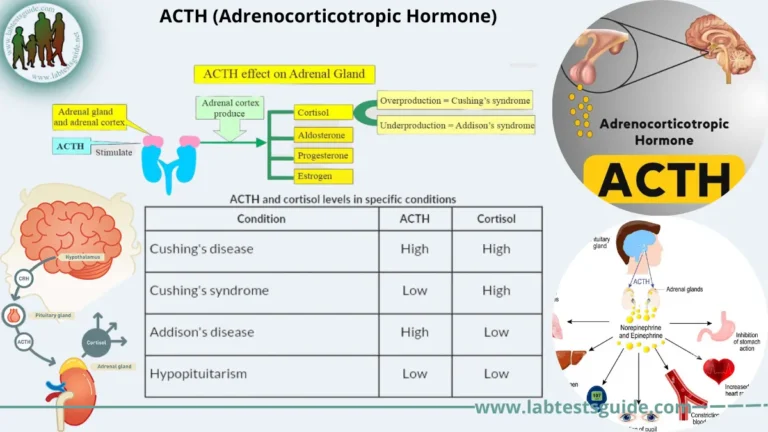This IgE allergy test uses a blood sample to determine if you are allergic or hypersensitive to Gluten. Gluten is a combination of proteins that can be found in some grains like wheat, rye and barley, or as an additive in many processed foods.

Gluten allergies and sensitivities are typically less severe than other gluten-related conditions like Celiac disease. Symptoms of a gluten allergy may include abdominal discomfort, bloating, gas, constipation or diarrhea when they eat gluten products. These symptoms often cease when gluten is cut from the diet.
Traditional allergy tests utilize the Skin Prick method (also known as a Puncture or Scratch test) to determine whether an allergic reaction will occur by inserting possible triggers into your skin using a needle prick. If you are allergic to the substance, you are forced to suffer through your body’s reaction to the allergen. Pain-free blood test to determine the allergen status of substances without the irritation of traditional skin prick tests.
No painful skin pricks
- No fasting necessary
- Accurate results within 1 to 3 days
Our quick blood test allows us to use your blood sample to test for allergic reactions externally, rather than causing unnecessary and painful reactions by introducing potential allergens to your system. Tests are administered in approximately 10 minutes or less at any of our 4,500+ nationwide locations. No appointments, no paperwork and no waiting are all part of what makes HealthLabs.com the best option for pain-free and hassle-free allergy testing.
Biopsy Test
A biopsy of tissue from the small intestine is the most accurate way to diagnose celiac disease. In the diagnosis process, your doctor will most likely start with a blood test, such as tTG-IgA.
If one of those tests indicates the possibility of celiac disease, you doctor might perform an endoscopy to view your small intestine and take a biopsy for analysis before having you make dietary changes.
tTG-IgA test
One of the initial screens for celiac disease is the Tissue Transglutaminase IgA antibody test. According to the Celiac Disease Foundation, this test’s sensitivity is:
- positive in about 98 percent for people who have celiac disease and are eating a gluten-containing diet.
- negative in about 95 percent for people who do not have celiac disease
For children around 2 years old and younger, the test will usually include Deamidated Gliadin IgA and IgG antibodies.
There is a minor chance for false-positive results for people who don’t have celiac disease but do have an associated immune disorder, such as rheumatoid arthritis or type 1 diabetes.
EMA test
The IgA Endomysial antibody (EMA) test is typically reserved for people who are difficult to diagnose for celiac disease. It’s not as sensitive as the tTG-IgA test and is more expensive.
Total serum IgA test
This test checks for IgA deficiency, which can cause a false-negative tTG-IgA or EMA result. If the test indicates that you have an IgA deficiency, your doctor might order a DGP or tTG-IgG test.
Deamidated gliadin peptide (DGP) test
If you have an IgA deficiency or test negative for tTG or EMA antibodies, this test for celiac disease might be used. Although it’s unusual, if your tests are negative but the symptoms of gluten intolerance do not subside, talk with your doctor about other testing options or alternative diagnoses.
Genetic testing
In the diagnosis process, your doctor might recommend genetic testing for human leukocyte antigens (HLA-DQ2 and HLA-DQ8). This can be used to eliminate celiac disease as a cause of your symptoms.
Home testing
More than half of people with celiac disease continue to have symptoms even when they’re on a strict gluten-free diet, according to the Celiac Disease Foundation.
A commonly cited reason for this is unintentional gluten consumption. If you think that describes your situation, you can take an in-home urine or stool test to determine if you’ve consumed any gluten in the past 24 to 48 hours.
There are also in-home blood and DNA tests available for celiac disease testing. If you’re considering an in-home test, talk to your doctor about accuracy and potential risks. Also check to see if in-home testing is covered by your health insurance.
Who should be screened for celiac disease?
If you’re experiencing digestive discomfort or diarrhea for more than two weeks, talk to your doctor about your symptoms and consider asking about celiac disease screening.
The most common symptoms of celiac disease include:
- diarrhea
- weight loss
- fatigue
- gas
Celiac disease symptoms that are not related to digestion can include:
- anemia
- osteoporosis (loss of bone density)
- osteomalacia (softening of bone)
- hyposplenism (reduced function of spleen)
- dermatitis herpetiformis (itchy skin rash with blisters)
Possible References Used




